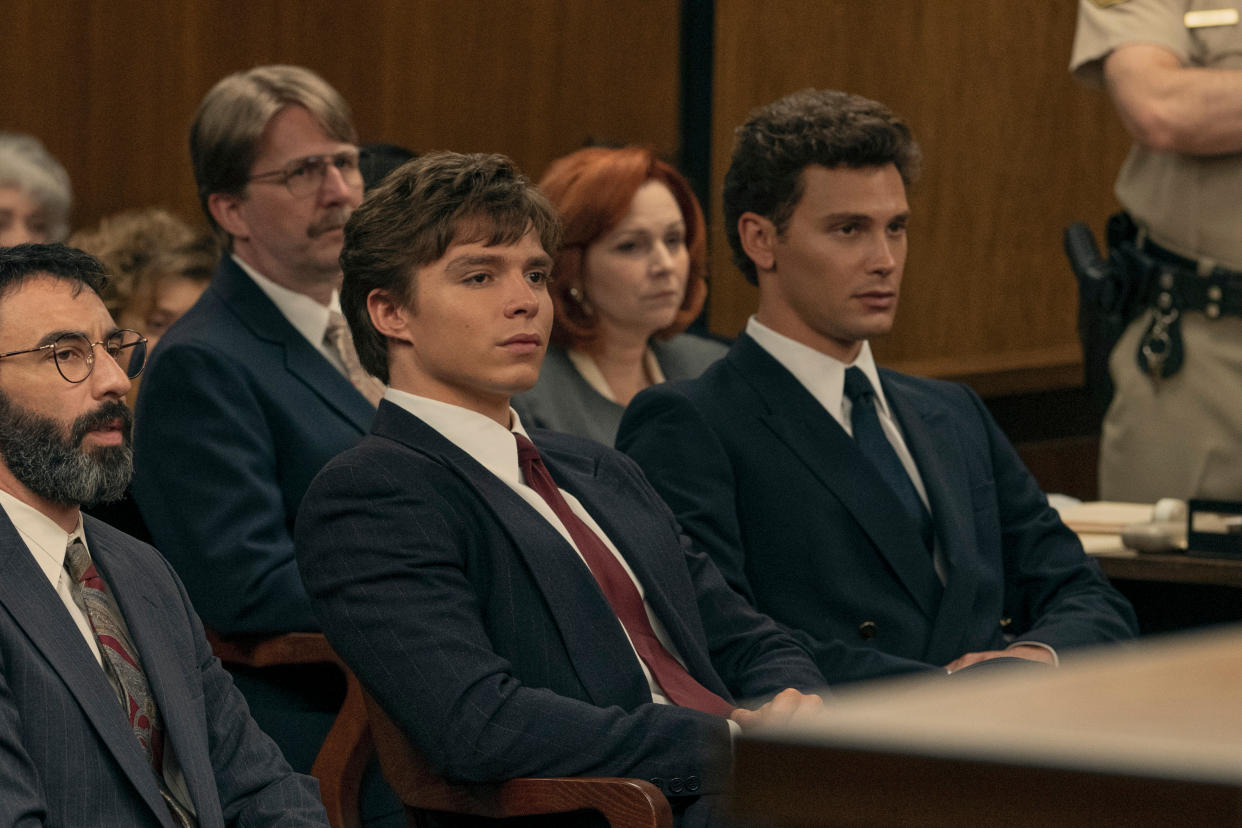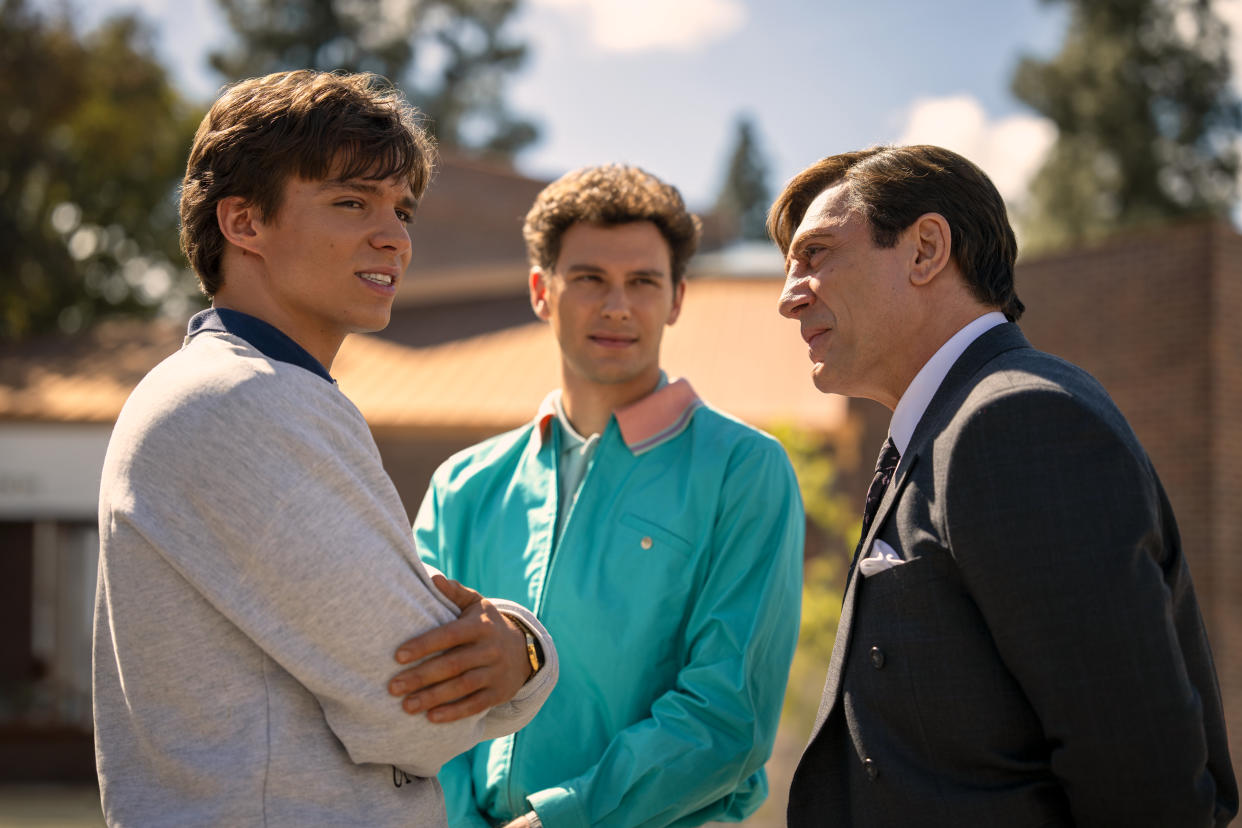Why is Monsters on Netflix so controversial?

Erik Menendez has hit out at Netflix show Monsters for its "dishonest portrayal" of him and his brother Lyle, in what is the latest controversy over Ryan Murphy's crime anthology series.
The new season of Monsters centres on the Menendez brothers and their killing of their parents José and Mary Louise 'Kitty' Menendez in August 1989. The siblings, who are currently serving life sentences for the murders, argued in court that they committed the crime because they believed their father would kill them after threatening to expose the years of sexual, emotional and physical abuse he allegedly subjected them to.
Read more: The true story behind Monsters: The Lyle and Erik Menendez Story
In the TV show it is implied that the Menendez brothers had an incestuous relationship, with one scene showing actors Nicholas Alexander Chavez and Cooper Koch (who play Lyle and Erik, respectively) kissing each other on the lips. This happens more than once on the show, and other scenes include the actors being shown dancing together in an intimate fashion.

The inclusion of such storylines has received backlash from viewers, but also the real Erik Menendez who called out the series in a statement via his wife Tammi's social media account.
In the statement, Menendez said: "I believed we had moved beyond the lies and ruinous character portrayals of Lyle, creating a caricature of Lyle rooted in horrible and blatant lies rampant in the show. I can only believe they were done so on purpose. It is with a heavy heart that I say, I believe Ryan Murphy cannot be this naive and inaccurate about the facts of our lives so as to do this without bad intent.
"It is sad for me to know that Netflix's dishonest portrayal of the tragedies surrounding our crime have taken the painful truths several steps backward — back through time to an era when the prosecution built a narrative on a belief system that males were not sexually abused, and that males experienced rape trauma differently than women.
"Those awful lies have been disrupted and exposed by countless brave victims over the last two decades who have broken through their personal shame and bravely spoken out."
Erik's response to the Netflix's series.#NetflixMonsters #Netflix #RyanMurphy pic.twitter.com/Xz1waxA2u3
— Tammi Menendez (@TammiMenendez1) September 20, 2024
The backlash to Monsters brings up the age old moral question around true crime, and our obsession as a society with it, does it ever not re-victimise the real people involved in the case?
Read more: Could Monsters impact Lyle and Erik Menendez's real case?
This isn't the first time that Murphy's Netflix show has courted controversy, as the first season —which was centred on the crimes of Jeffrey Dahmer— was called out by multiple family members of Dahmer's victims for not consulting them or asking permission to include their story in the drama. At the time Eric Perry, the cousin of victim Errol Lindsey, said the series was "retraumatising [the family] over and over again, and for what? How many movies/shows/documentaries do we need?"

True crime often walks a thin line when it comes to this, is it a way to inform the public of horrific crimes or can it quickly fall into being a morbid way to entertain people? And if it becomes the latter then what of the real-life people involved, the victims? The family of victims?
There are examples of both types of true crime shows in the past. For the former, it is possible that a drama can be purely informative by allowing victims to be closely involved with the project, such as A Friend of the Family. The Peacock series dramatised the kidnappings of Jan Broberg as a child, and gave Broberg and her mother Mary Ann the opportunity to be involved throughout the writing process to present an accurate portrayal of what happened to her.

Monsters falls into the latter, a crime series that is created with entertainment in mind. This is because it fictionalises aspects of its narrative for shock value, including the aforementioned incest storyline between Lyle and Erik Menendez.
In the Netflix show writer Dominick Dunne suggests the brothers are "hiding an even darker secret" than their father's abuse, however in reality the writer did not write about this theory in his coverage of their trial in 1990. Nor did Robert Rand in his book The Menendez Murders, which the series is based on.
Monsters: The Lyly and Erik Menendez Story is out now on Netflix.
This article originally appeared on Yahoo TV UK at https://uk.news.yahoo.com/monsters-netflix-erik-lyle-menendez-incest-124309598.html


